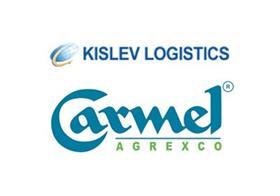
The sale of Israeli fresh produce exporter Agrexco to Kislev Group, a forwarding and logistics specialist based in the country's central city of Lod, has effectively been confirmed following a special legal hearing at the Tel Aviv District Court.
The selected bid, which was submitted by Kislev Forwarding and Customs Clearing Ltd was given the green light by Judge Varda Alshech, who dismissed the one other formal offer, from Dutch private equity fund Vertical Capital Group, which owns a number of companies including Italy and Europe's largest flower marketer, Ciccolella.
However, the court has extended Agrexco's stay of proceedingsuntil the end of August and ordered the company's trustee, Shlomo Nass, to translate Kislev's bid into 'a settlement with all creditors'.
Nass, who oversaw the sale and has many years' experience of finding buyers for companies, said the sale had been the most difficult he had ever encountered.
At a preliminary hearing earlier this week, when it was revealed that the two offers were on the table, Alshech was highly critical of how the case hade been handled by Agrexco's shareholders, which include the Israeli government.
'I have never seen such conduct by shareholders,' the judge said. 'I am not prepared that Nass will again string me out until the hearing. Why are we hearing about these offers for the first time today?
'If there is no detailed offer the next time, I will void the stay of proceedings and Agrexco will be liquidated. There is no point in examining an offer that looks like Swiss cheese.'
Nass replied: 'Until 30 seconds ago, I didn’t know what I was going to say. In my 30 years in this business, I have never encountered such a difficult case.
'For 56 years, they've been trying to bring customers to the company, and if it goes under, hundreds of suppliers and growers will collapse.'
The main problem facing Nass has been to convince potential investors that growers will stay with the company.
As Israeli financial newspaper Globes observed, the problem of over-centralisation has deterred several potential bidders, which were understood to include Total Produce and Univeg.



